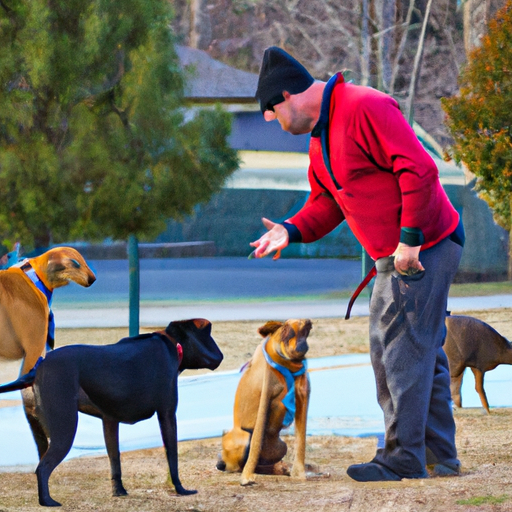Understanding Why Your Dog Barks at Other Dogs
To effectively train your dog to stop barking at other dogs, you first need to understand why it happens. Dogs bark for a multitude of reasons, and in many cases, it is a natural behavior that serves important purposes.
- Fear or Anxiety: Dogs often bark when they’re scared or anxious. This might be the case if your dog’s barking is accompanied by other signs of anxiety, such as pacing, trembling, or trying to hide.
- Territorial Behavior: If your dog only barks at other dogs when they’re in his territory (your home, your yard, etc.), he might be trying to protect his space.
- Excitement and Play: Sometimes, dogs bark simply because they’re excited and want to play. This is often the case if your dog’s barking is accompanied by a wagging tail and playful body language.
- Attention-Seeking: Dogs may bark because they want attention from you or from the other dog. They learn that barking gets them what they want.
Table 1: Common Reasons for Barking
| Reason | Signs | Solution |
|---|---|---|
| Fear or Anxiety | Pacing, trembling, trying to hide | Counter-conditioning, desensitization |
| Territorial Behavior | Barking in their territory | Training to establish boundaries |
| Excitement and Play | Wagging tail, playful gestures | Teaching calm behaviors |
| Attention-Seeking | Barks when ignored | Ignoring until quiet, then rewarding |
Training Techniques to Stop Your Dog Barking at Other Dogs
Once you’ve identified the likely cause of your dog’s barking, you can start implementing the appropriate training techniques. Remember, patience is key when it comes to dog training. It may take time, but with consistency, your dog will eventually learn to stop barking at other dogs.
- Teach Your Dog the “Quiet” Command: This involves teaching your dog to stop barking on command. Start by saying “quiet” when your dog starts barking, then rewarding him when he stops.
- Counter-Conditioning and Desensitization: This involves changing your dog’s response to the other dogs that triggers his barking. Start by exposing your dog to the trigger at a distance, then rewarding him for calm behavior.
- Teach Your Dog to Focus on You: This involves teaching your dog to look at you on command. This can be useful when you see another dog approaching, as it can distract your dog from the potential trigger.
- Ignore the Barking: If your dog is barking for attention, simply ignoring him until he stops can be effective. Once he’s quiet, reward him with praise and a treat.
- Professional Help: If your dog’s barking is causing significant problems and you’re not seeing improvement with these techniques, it might be worth considering professional help.
The Importance of Socialization
Socialization is a critical part of any dog’s upbringing, and it can significantly reduce the likelihood of your dog barking at other dogs. By exposing your dog to a wide variety of dogs and other animals in a controlled and positive way, you can help your dog learn to be comfortable around other dogs, reducing the need for barking.
- Take your dog to dog parks
- Arrange playdates with other dogs
- Enroll your dog in obedience classes
Ensuring Consistency in Training
Consistency is key when it comes to dog training. Everyone in your household should be using the same commands and rewards to avoid confusing your dog. It’s also important to consistently reward your dog for good behavior and not to punish him for barking, as this can create fear and anxiety, which can exacerbate the problem.
The Role of Exercise and Mental Stimulation
Physical exercise and mental stimulation are essential for a dog’s overall well-being, and they can also help reduce barking. A tired dog is a good dog, and a dog that is mentally stimulated is less likely to bark out of boredom or frustration.
- Regular walks and play sessions
- Mental stimulation games and toys
- Agility or obedience training
FAQ
Q: How long will it take to train my dog to stop barking at other dogs?
This varies depending on the dog and the cause of the barking. With consistency, you should start to see improvements within a few weeks.
Q: My dog only barks at certain dogs, why is this?
Every dog is different and may have different triggers. Your dog might feel threatened by certain breeds or sizes of dogs, or he might be reacting to the other dog’s behavior.
Q: Should I punish my dog for barking?
No, punishment can often make the problem worse. It’s better to focus on rewarding good behavior.
Q: What if my dog won’t stop barking even after training?
If your dog’s barking is causing significant problems and you’re not seeing any improvement, it might be worth seeking help from a professional dog trainer or behaviorist.
Q: Can I use a bark collar to stop my dog from barking?
Bark collars should be a last resort and only used under the guidance of a professional. There are many training techniques that can be tried first.



